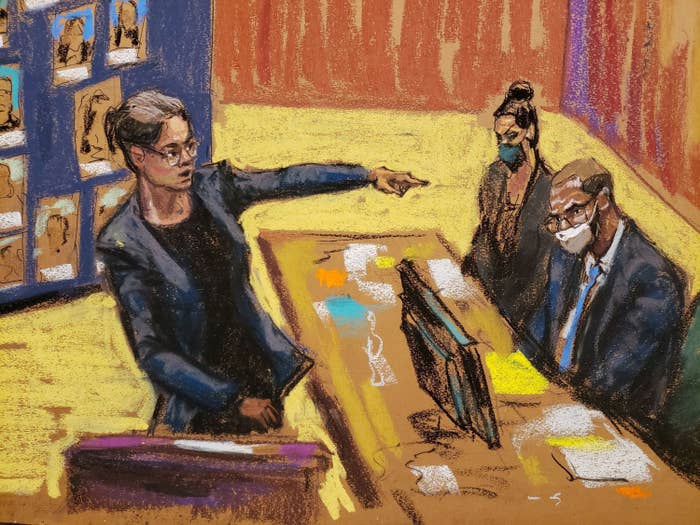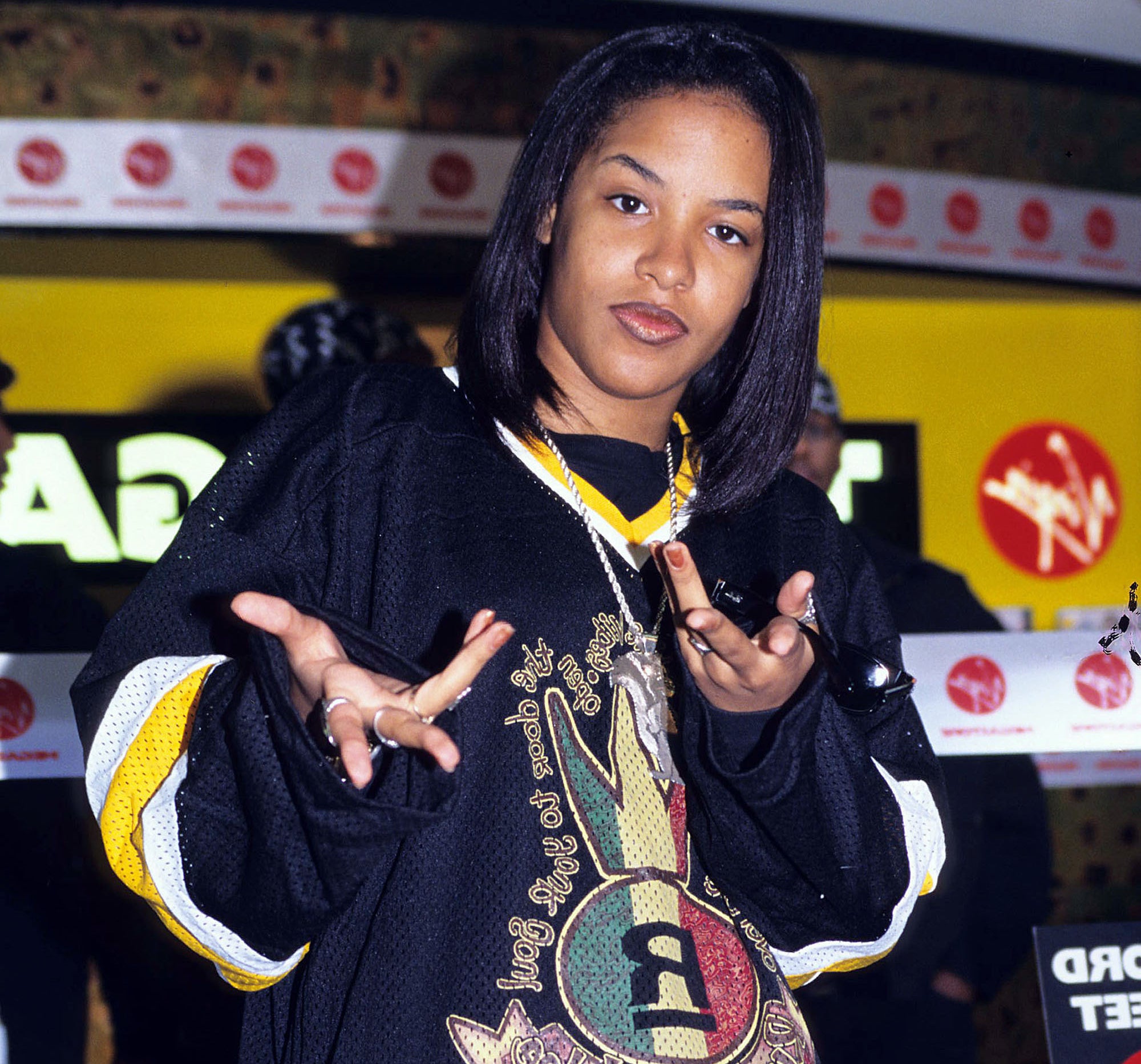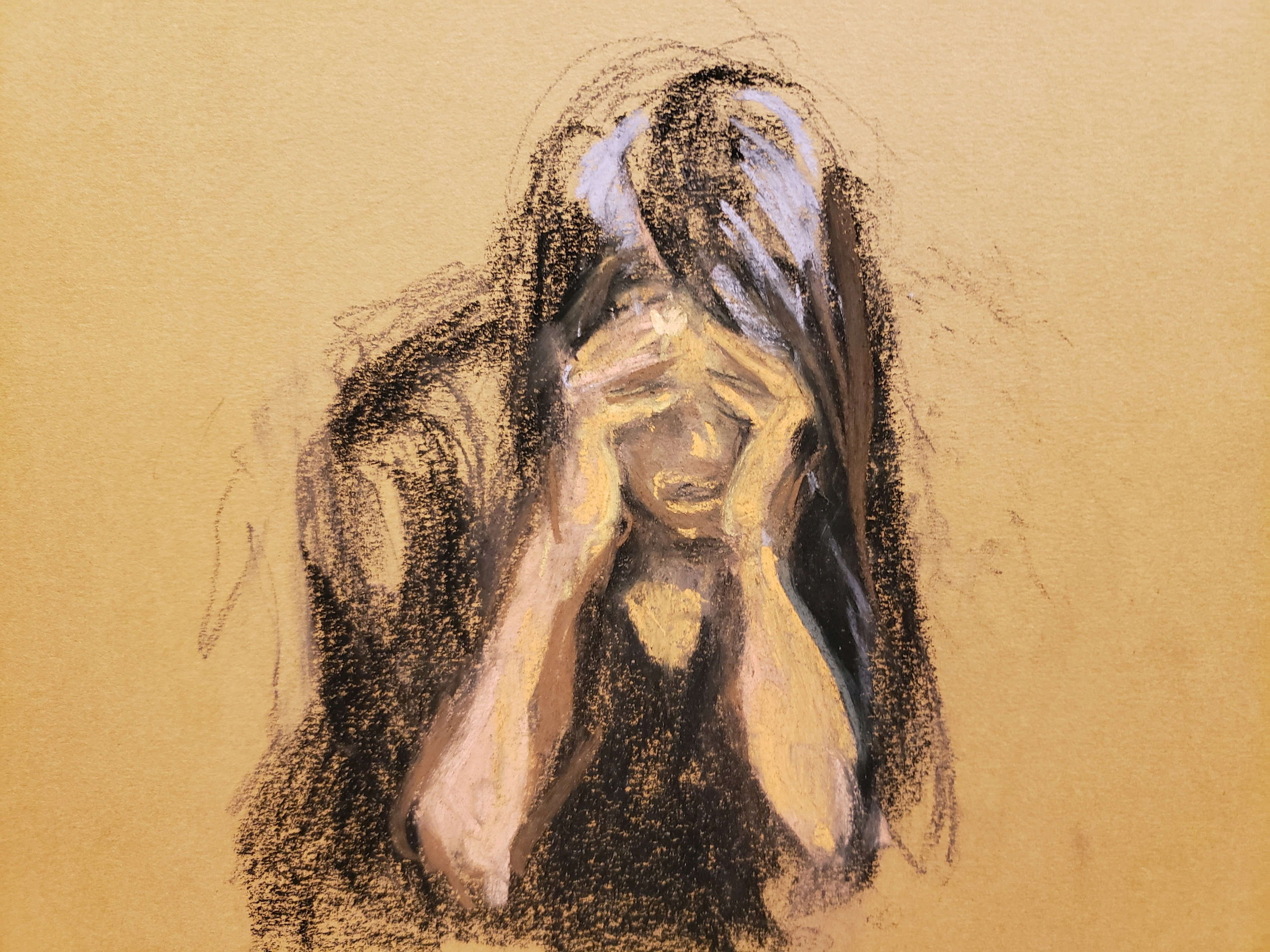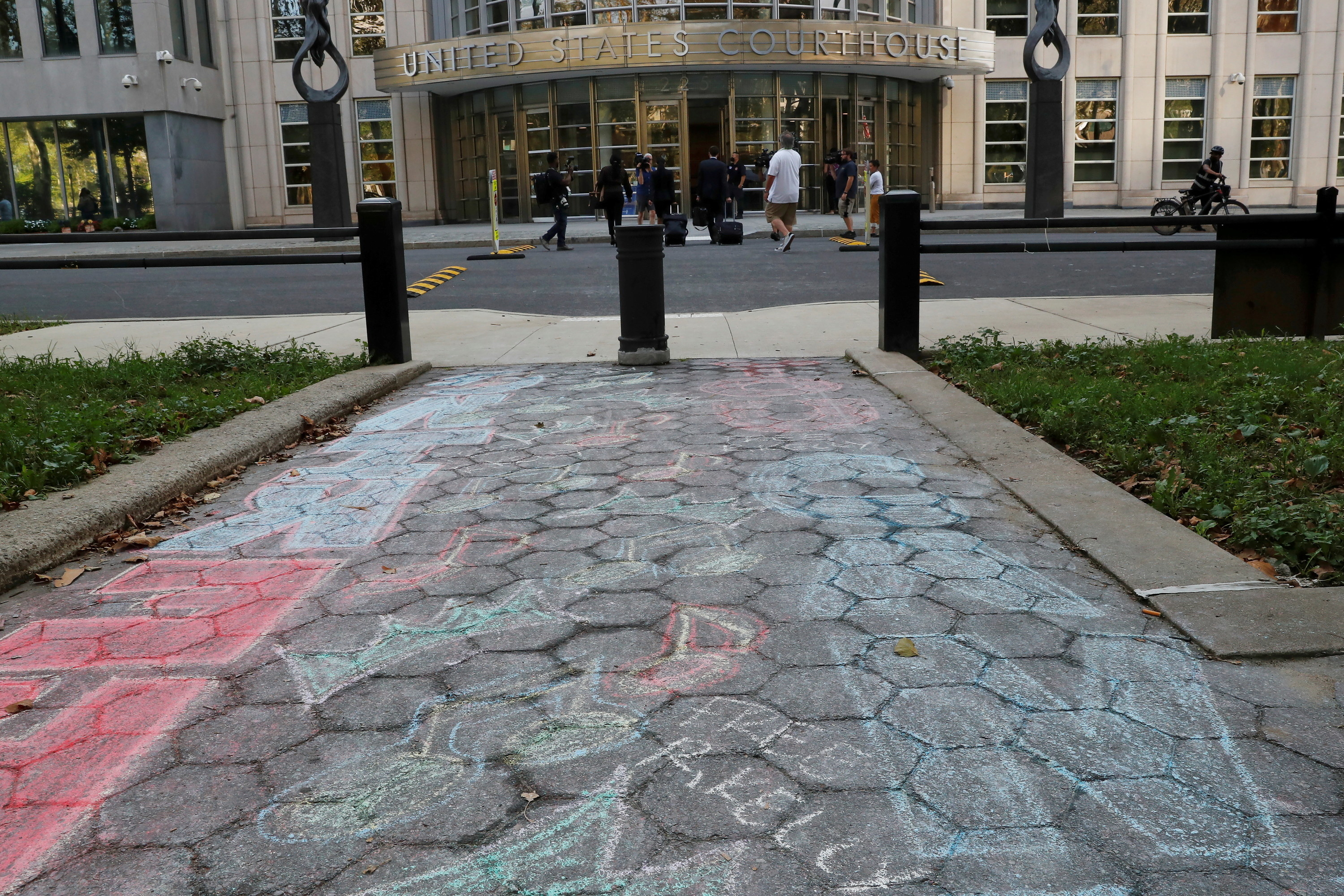
BROOKLYN — R. Kelly, the R&B singer who for more than 25 years faced accusations of sexually abusing dozens of young victims without consequence, was found guilty of federal crimes on Monday.
For over a month, Kelly has been on trial in Brooklyn federal court on one count of racketeering and eight counts of violating the Mann Act, a federal law addressing sex trafficking. Federal prosecutors accused Kelly of running an “enterprise” through which he exploited his star power time and time again to prey on underage girls, young women, and at least two male victims.
Jurors deliberated for just nine hours to reach their verdict, finding Kelly guilty on all counts. He now faces decades in prison and is scheduled to be sentenced May 4, 2022.
The federal charges against Kelly came after BuzzFeed News in 2017 published an investigation by Chicago journalist Jim DeRogatis revealing that parents had told police that the singer was allegedly holding their daughters against their will in a “sex cult.” In January 2019, the documentary Surviving R. Kelly further detailed their allegations and those of multiple women who said Kelly had abused them, once again raising questions about how he had escaped accountability.

At trial, the government laid out an expansive, detailed case to prove Kelly’s guilt beyond a reasonable doubt, bringing hundreds of pieces of evidence and 45 witnesses, 11 of whom were his victims. They testified, at times through tears, about how Kelly sexually, emotionally, physically, and verbally abused them, some for years. He was directly charged for crimes related to just six women — including Aaliyah, the late R&B singer Kelly married when she was 15 — but the government used evidence that he’d abused others to argue that the scope of Kelly’s actions amounted to racketeering.
"It is time to hold the defendant responsible for the pain that he inflicted on each of his victims: Aaliyah, Stephanie, Sonja, Jerhonda, Jane, and Faith," Assistant US Attorney Elizabeth Geddes said in her closing argument, naming each of the women Kelly was charged with abusing.
"It is now time for the defendant, Robert Kelly, to pay for his crimes,” she continued. “Convict him."
Kelly’s history of abuse, prosecutors said, dates back to at least the early 1990s. Many of the witnesses spoke of the strict “rules” they had to follow in his presence: They couldn’t leave a room without his permission, even for food or the bathroom. Their communications were tightly controlled, isolating them from their friends and families. They had to wear baggy clothes, hiding their bodies from all but Kelly, whom they were required to call “Daddy.” They were not to interact or even make eye contact with any other men, often having to look down or face walls when in their presence.
And many of their stories were mirrored in one another’s testimony. Breaking one of the “rules” meant punishment, often spankings or being forced to stay in a room for days. Numerous witnesses said Kelly made them have sex with him and his other “girlfriends” whenever he wanted, often filming the encounters and directing their every move. Condoms were almost never used, and Kelly — who has had genital herpes since at least 2000, his physician of many years testified — knowingly infected several of them without informing them of his condition. Both victims and employees were made to write “collateral” letters containing embarrassing falsehoods, like that they’d stolen from Kelly or been molested by family members, as potential blackmail in case he ever went to trial.
Though Kelly has been indicted multiple times since the late 1990s, he has never faced criminal consequences in connection with sexual abuse. (In addition to this year’s federal trial in New York, he is awaiting trial on federal and state charges in Illinois and also faces charges in Minnesota.) He was found not guilty of producing child sexual abuse images in 2008 in spite of a video that allegedly showed him having sex with and urinating on a 14-year-old girl. She and her family did not testify during the trial, and jurors questioned if the video actually showed the abuse of an underage girl. Some other sexual misconduct allegations were swept under the rug with secret settlements. And as was an open secret for years, in 1994 a 27-year-old Kelly married Aaliyah when she was just 15.

Many details about Kelly’s relationship with Aaliyah, who died in a plane crash when she was 22, surfaced for the first time during this trial. Angela — a witness who testified that Kelly began sexually abusing her when she was 14 or 15 — went on to be a backup singer for Aaliyah and toured with her and Kelly. During that tour, Angela said, she once walked in on Kelly performing oral sex on Aaliyah, who would have been just 13 or 14 at the time.
When Aaliyah was 15, she and Kelly were married — a claim they both long denied, even though their marriage license was published in the media. For years, little was known about the marriage, including why it had taken place. But Demetrius Smith, Kelly’s former manager, testified under subpoena that Aaliyah had a pregnancy scare and Kelly thought marrying her would protect him from legal repercussions. Jane, a pseudonym for another victim, testified that Kelly said he married Aaliyah so she could get an abortion without notifying her parents. Aaliyah was not actually pregnant, and their marriage was annulled months later.
In order to pull off the illegal marriage, Smith admitted he bribed a welfare office employee at Kelly’s direction, paying $500 cash for a fake ID stating Aaliyah was 18. The minister who married them, Nathan Edmond, testified that he had not known either singer beforehand and officiated as a favor to a mutual friend. The ceremony lasted less than 10 minutes, with Kelly leaving immediately after to head back out on tour. Days later, Kelly allegedly raped a 17-year-old girl in his dressing room after a show, the now-adult woman testified.
Multiple women testified that they had first had sexual contact with the singer as teenagers, which Kelly said, according to one witness, that he should be allowed to do because he is a “genius.” Jerhonda met Kelly at his 2008 trial as a 14-year-old fan who showed up to support him. Just over a year later, when she was 16, the two began a sexual relationship that went on for six months. One day, Jerhonda did not acknowledge Kelly quickly enough when he entered the room, and he flew into a rage, she said. Kelly slapped her, choked her until she passed out, spat on her, and then forced her to perform oral sex on him. She said she wiped her face after he ejaculated on her with a T-shirt, and prosecutors showed at trial that it matched his DNA.

Jane gave three days of disturbing testimony about her five-year relationship with Kelly, which began in 2015 when she was just 17. In 2017, she said, Kelly got her pregnant, and he made her get an abortion against her will because he “still wanted [her] to keep [her] body tight.” Kelly would often beat her, she said, one time with a sneaker, and once punished her by making her film a video in which she smeared herself with feces and put some of it in her mouth.
The video and others were presented to the jury as evidence. In audio from one recording, a woman can be heard moaning and saying, “It makes my pussy wet to play in my shit, Daddy.”
Threats were one of the many tools Kelly used to maintain a culture of silence, according to multiple witnesses. Sonja, a former radio intern — who testified she was locked in a recording studio room for days and deprived of food and water before being drugged and sexually assaulted — said employees copied down information on her family and friends from her phone, made her sign two NDAs, and told her “don’t fuck with Mr. Kelly” before she was allowed to leave. Faith, who appeared in Surviving R. Kelly, testified that she was contacted by one of Kelly’s employees, who showed her a file of nude photos Kelly had taken of her and threatened they would be leaked if she went forward with the docuseries. About a week after it began airing, those same photos were published on a Facebook page called “Surviving Lies.”
On Monday, acting US Attorney Jacquelyn Kasulis praised the victims for their courage in revealing intimate and painful details of their abuse in open court. The guilty verdict would not have been possible without them, she said, and she recognized the risks they took in speaking up.
"No one deserves what they experienced at his hands, or the threats and harassment they faced in telling the truth about what happened to them," she said.
A small but devoted contingent of R. Kelly superfans attended the trial, many showing up nearly every day. In a park outside the courthouse, they would blast his music and write “Free R. Kelly” across the pavement in chalk. During court proceedings (the public and press viewed the trial remotely in an overflow room due to COVID safety protocols), fans would regularly interject to insult witnesses, accuse them of lying, and mutter their support to the defense. Disputes between the supporters over limited seats were commonplace, and one was arrested after a fellow supporter reported him for sexual harassment.

Kelly’s defense, which was led by attorney Deveraux Cannick, largely focused on painting the victims as liars. Throughout the trial, Cannick repeatedly blamed women who said they were abused, questioning several on why they didn’t leave Kelly sooner or call the police. (In fact, Kelly at times paid off-duty police officers, one of whom was a childhood friend, to serve as his security staff.) He suggested they were out for financial gain, “monetizing” their allegations through lawsuits and appearing in the docuseries. “A lot of people watched Surviving R. Kelly, and now a lot of people are surviving off R. Kelly,” he said in his closing argument, which contained bizarre metaphors and falsehoods about testimony.
Speaking to reporters after the verdict was announced, Cannick said Kelly was disappointed and would be pursuing an appeal. He also once again accused the victims of telling inconsistent stories.
In the prosecutors’ rebuttal, Assistant US Attorney Nadia Shihata criticized the defense’s reliance on victim-blaming tactics, saying they had put the blame on everyone but Kelly himself.
“It’s like we took a time machine and went back to a courthouse in the 1950s,” Shihata said. “What they’re arguing is that all of these women and girls were asking for it, and they deserved what they got — never mind that many of them were teenagers, too young to consent.”

